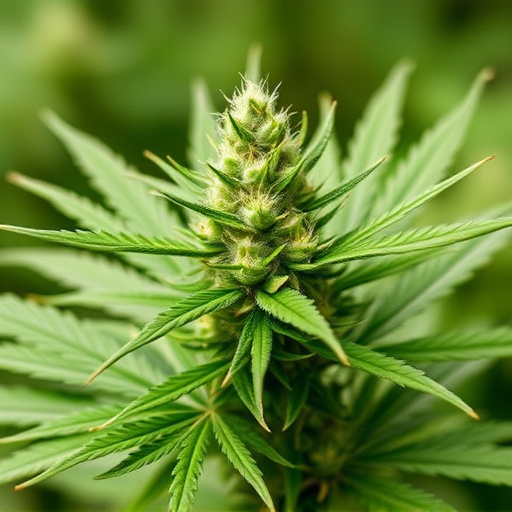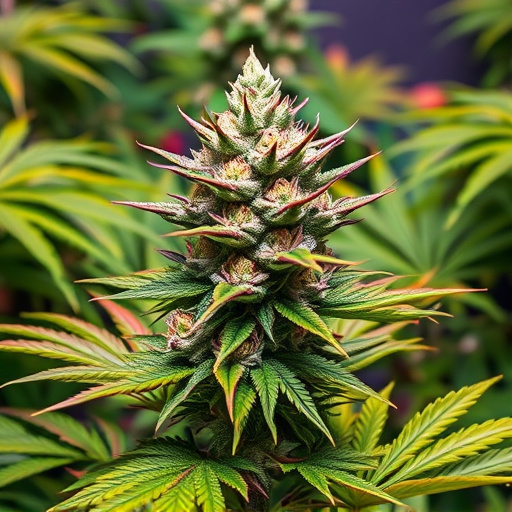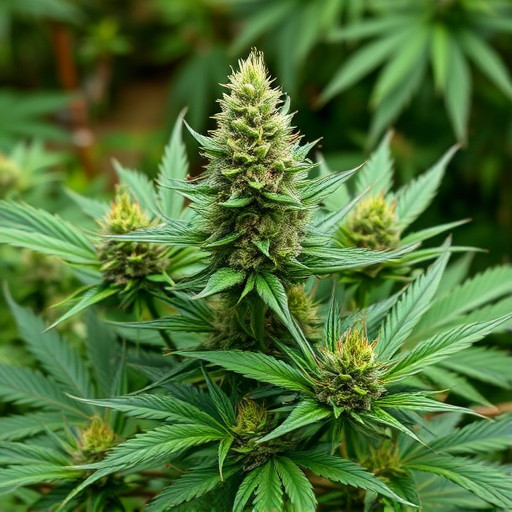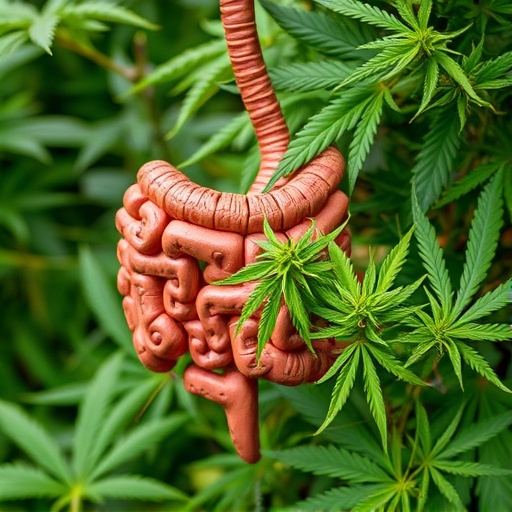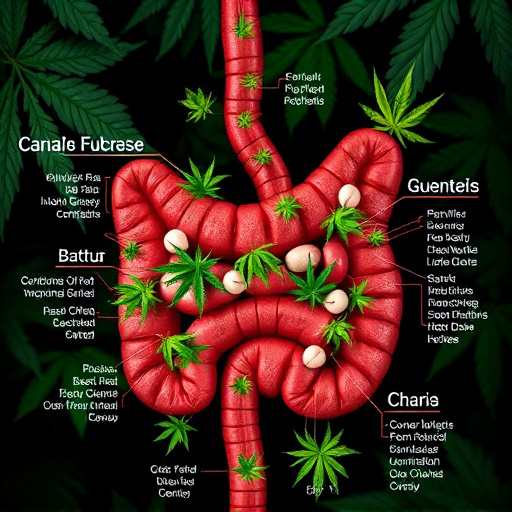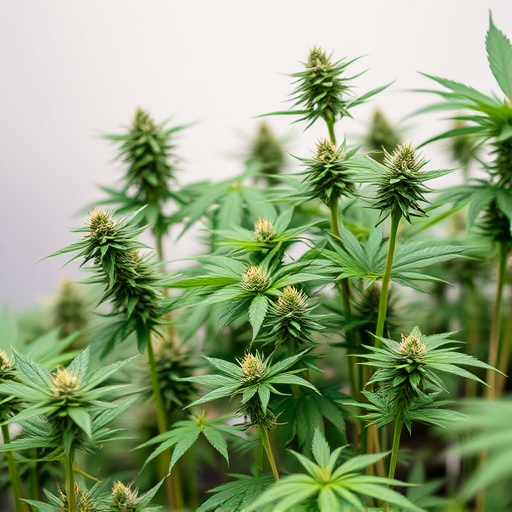Cannabis contains cannabinoids like THC and CBD that interact with our endocannabinoid system, affecting pain perception, appetite, mood, and memory. Aging reduces THC content but increases CBD levels in plants, offering potential benefits for conditions like chronic pain, inflammation, and Crohn's disease. Proper storage is crucial to retain potency, especially for individuals relying on cannabis for Crohn's symptoms. High-CBD strains are popular for their anti-inflammatory and analgesic properties, providing alternative or adjunctive therapy for CD patients, but consulting healthcare professionals before use is essential.
Can a weed that’s been sitting around for ages still deliver the goods? Let’s explore the fascinating world of cannabinoids, their effects, and how age affects their potency. We’ll delve into how storage conditions play a role and even uncover some specific cannabis strains beneficial for managing Crohn’s Disease symptoms, providing relief in unexpected ways. Get ready to discover why that old stash might not be so stale after all!
- Understanding Cannabinoids and Their Effects
- The Impact of Age and Storage on Potency
- Exploring Strains Suitable for Crohn's Disease Patients
Understanding Cannabinoids and Their Effects
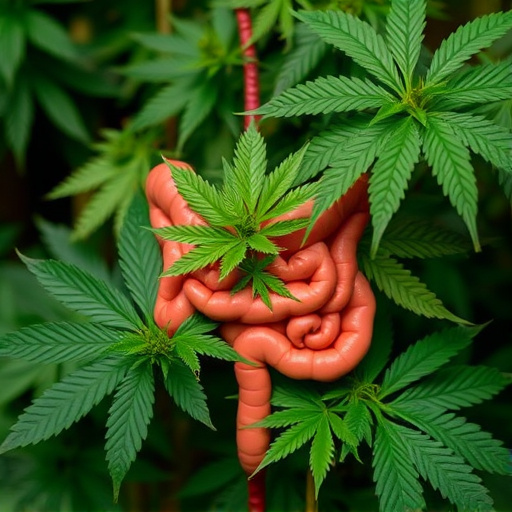
Cannabinoids, like THC (tetrahydrocannabinol) and CBD (cannabidiol), are chemical compounds found in cannabis plants that interact with our bodies’ endocannabinoid system. This system plays a significant role in regulating various physiological processes, including pain perception, appetite, mood, and memory. When we consume cannabis, these cannabinoids bind to receptors in our brains and other parts of the body, leading to the associated effects, such as relaxation, euphoria, or increased appetite.
While aging can cause cannabis plants to reduce their cannabinoid content, particularly THC levels, it doesn’t necessarily mean that old weed is less potent or effective. Some older strains may actually have higher CBD-to-THC ratios, which could be beneficial for conditions like chronic pain, inflammation, and even Crohn’s disease. The unique profile of cannabinoids in different cannabis strains can significantly impact how individuals experience and benefit from the plant’s effects, regardless of its age.
The Impact of Age and Storage on Potency
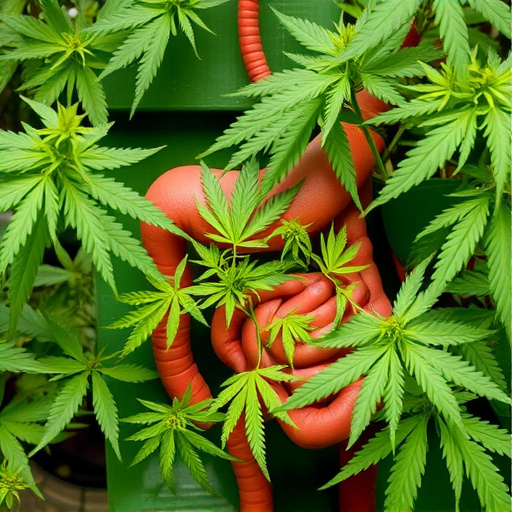
The age of cannabis can significantly impact its potency, with some arguing that older herb may not deliver the same intense high as fresh harvests. Over time, cannabis plants undergo natural degradation processes, leading to potential changes in cannabinoid profiles and concentrations. For instance, THC (tetrahydrocannabinol), the primary compound responsible for most of cannabis’ psychoactive effects, can gradually break down into CBN (cannabinol), which has lesser potency and is more sedative.
Storage conditions also play a crucial role. Properly stored cannabis retains its potency better than that left exposed to light, heat, and humidity. In fact, excessive heat can accelerate the degradation of cannabinoids, especially in older plants. This is particularly relevant for individuals with Crohn’s disease who may seek specific cannabis strains for their therapeutic benefits. Storing older cannabis properly ensures they receive the most effective relief from conditions like Crohn’s, maximizing the potential benefits without compromising potency.
Exploring Strains Suitable for Crohn's Disease Patients
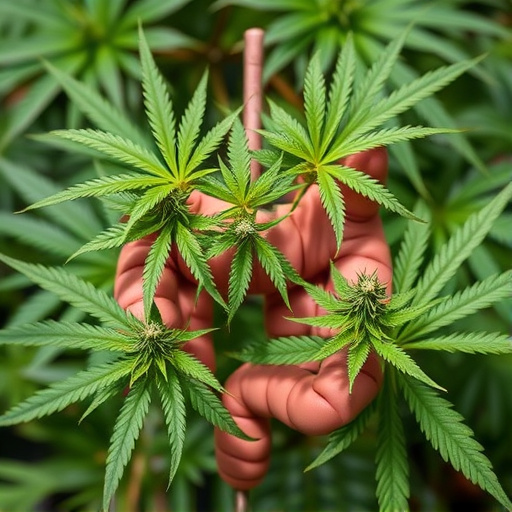
Cannabis has been explored as a potential treatment option for various medical conditions, including Crohn’s Disease (CD), an inflammatory bowel disease (IBD). When it comes to choosing strains suitable for CD patients, several factors come into play. Certain cannabis strains are known for their anti-inflammatory and analgesic properties, which can help alleviate the symptoms associated with CD flare-ups.
Research suggests that specific cannabis compounds, such as tetrahydrocannabinol (THC) and cannabidiol (CBD), may offer benefits. THC has been studied for its ability to reduce inflammation and pain, while CBD is known for its anti-inflammatory and immune-modulating effects. When it comes to strains, some popular choices include those with higher CBD content, as these tend to provide a more balanced and potentially milder high, along with the therapeutic benefits sought by CD patients. Exploring these cannabis strains suitable for Crohn’s Disease patients can offer a promising alternative or adjunctive therapy, but consulting healthcare professionals is crucial before incorporating cannabis into any treatment plan.
While age can reduce the potency of cannabis, older weed can still offer therapeutic benefits, especially for conditions like Crohn’s disease. The right strains, with balanced CBD and THC levels, can provide relief without overwhelming effects. Understanding the science behind cannabinoids and their interaction with our bodies is key to navigating the potential benefits of aged cannabis, particularly when exploring specific strains known to alleviate inflammation and pain associated with Crohn’s disease.


